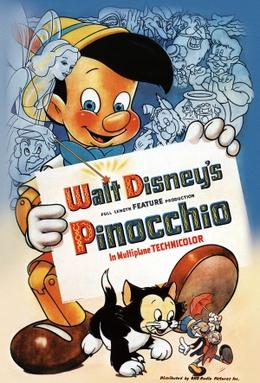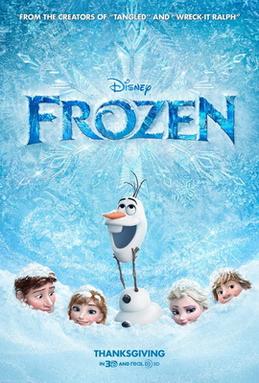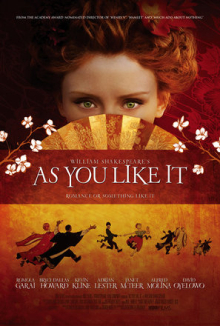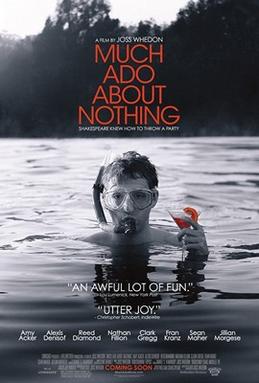Thanksgiving: November 28th, 2019
I was having a conversation with someone earlier this year and he mentioned something that completely changed the way I looked at the world.
Have you ever had an experience that you thought was common to all people, only to find out that it was rare or non-existent in everyone else? I remember for years I was pronouncing the word "translucent" as "trans-Glousent." I don't know where the error occurred, but I had been doing it for nearly 30 years. It wasn't the most earth-shattering thing, but it made me look back at my entire story and realize that I saw the world slightly different than everyone else.
In my conversation earlier this year, I was speaking about friendship. The person with whom I was speaking said, "I don't think most people have friends the way you do."
Allow me to explain. It has to do with the movie
Young Guns.
One of the reasons that I spend so much time and thought on things in pop culture like movies is because I think that on an autobiographical level, they DO matter. The stories we encounter, and for me it is especially found in movies, shape how we look at the world. They create the vocabulary for us to express and interpret our lived experience.
I saw the movie
Young Guns when I was 10-years-old. Perhaps it was a bit violent for someone my age, but I grew up in a house with cable TV and very little supervision in that area. The movie is about Billy the Kid and the Regulators who take on the corrupt forces in New Mexico. At one point in the movie, one of the Regulators is about to leave. But Billy says:
"See, you get three or four good pals, well then you've got yourself a tribe. And there ain't nothing stronger than that."
For me, these words resonated deeply. There are many people in my life that I would call my friends. And I think that is true about many of us. There are those people whose company we enjoy and thus continue to spend many pleasant hours with. But there is a deeper level to be found. There is a fellowship that is more than a mutual admiration or mere sentiment.
It is a bond.
The deepest level of friendship, for me, has always been that place where your life is knit together with another in a way that needs not be declared or ever spoken out loud but is present regardless. It happens when, whether planned or not, the other person is not simply someone who happens to be in your story, but they become a part of your story and you are part of theirs. This bond takes the form of new language, a shorthand that looks to people from the outside like inside jokes. But it isn't a code to keep people out. When you share a life with someone, your mutual memories co-mingle with each other so that your souls come into closer contact than with others.
It is also most deeply expressed in the intuitive sense of obligation. When you become a parent, there is a part of your life that you immediately understand is no longer yours. It is the same thing when you get to the deepest level of friendship. You owe an unpayable debt that requires you to be there for your friend when they are in need. It doesn't matter if it is convenient or inconvenient, you owe. But there is no bitterness in the debt. There is a solemn pride in being someone who is allowed this sacred bond.
I have been blessed with amazing friends. I do not say this as a boast or even a surreptitious humble-brag. I don't know what I have done in this life to warrant this treasure. Don't get me wrong, I am not some social pariah, but I find that the rewards of my friendships have greatly outweighed any costs.
CS Lewis said that we find friends when we see the same truth. He made his best friend when, as boys, they realized that they loved Norse Mythology. Jack (as CS Lewis was known by friends) and the other boy Arthur Greeves were pals until the day Lewis died.
I've probably written about this before, but back in seventh grade I did a presentation on my comic book collection. Afterwards, one of my classmates began to talk to me about an issue of
Wolverine that I had not read. Years later he was the best man at my wedding.
In preparing to write this, I've tried to recall how my best friends have entered in my life. I can remember with such clarity the day I met my wife, but with my friends it is much fuzzier. I was recently reminiscing with a friend that my first recollection of our friendship was in fourth grade when we were transferring desks from one school building to another singing "I Feel Good" by James Brown. There is another I can only remember our friendship beginning in second grade because we got into a contest about who could sit on certain colored lunch chairs for the most consecutive days. It doesn't make any sense that these moments could be the seeds that grew into life-long friends.
And these friendships are not the only ones. During high school, you begin the process of being the person you are going to be for the rest of your life. While there is still plenty of time to grow, the window for change begins to shrink as your choices for your life path get narrower and narrower. And here, you find people that begin to explore with you those awkward years of self-discovery and see you through all of your mistakes. They stand by you and lift you up when you fall. And if you have particularly good friends, they will confront you when you are on the wrong path. Again, some of the friendships began because we started hanging out and going to the movies together or because our widening social circle brought more people in. Sometimes it was even the geography of who lived across the street from whom. It starts with small encounters followed by car-ride conversation, late-night Denny's dinners, and conversations at 2 am in a foyer. We grew up with each other and because of each other.
And it didn't stop there. Funnily enough, though I made some friends in college, no one I went to college with became bonded to my life in the way I'm describing. But during those college years, those circles of mutual friends brought more people into my life. Again, it starts simply with mutual love of something like
Star Wars or comic books. And somehow you are having late-night conversations about life or watching their kids grow up through the years.
One of the things that has been a real blessing is becoming friends with my siblings. Growing up at such different times and ages, you see the world so differently. And yet as adults, we can come back together because of our shared life and we are bonded over that. I am so blessed to call each of my sisters my friend. And through them I can enter into friendship with their husbands. I was very close to my brother when we were younger, but we are not close friends now. Much of this is my own fault and how I behaved as a younger man (and to this day). I want to become friends again, and I will continue to figure out how.
Because that is what you do when someone is important in your life like this. One of my friends exited my life for a few years. Nevertheless, I never stopped keeping that door open to reconciliation. I even had someone tell me I was foolish and that I should let that friendship end. But here is the thing: I don't know how to do that.
When someone is bonded to your life like a pal, those doors are never shut. Time and distance don't break the invisible chains that bind you. There is someone with whom I became very close for a few years, but then there was a separation and we don't really talk. But I hold out hope that we will return to where we once were. And even if that day never comes, the bond is still there. A few years ago when my wife and I hit dire financial difficulties, this same friend called, though we hadn't spoken in a while, and spent a good hour on the phone advising me and consoling me. Even if his life's story is being written in a different book, the bonds still pull us together when the call is heard.
And of course, my greatest friend is my wife. And while the bonds of marriage are very different from all others in its intimacy and exclusivity, there is still the strong sharing that can only come from the deepest of friendship. Also, while I know I am called to friendship with Lord, I am shy about labeling this relationship as such. For while God is closer to me than all other persons, His majesty is so high above, that I will say that I am His friend, though I pray that He can say I am His.
Aristotle said that true friendship can only exist between equals. In some sense he is right, but I don't think friends really see each other as equals. Author Brad Meltzer once wrote that the best of friends don't see the other as an equal. They see them as their better. There is something about the other person that I admire and to which I aspire. Meltzer hit it a bit closer than Aristotle. How did I ever get so lucky as to have these friends in my life?
If you lined up my pals and offered me $1 billion dollars to let any of them go from my life, I would reject that offer without a moment's hesitation. Each one of them is too much of a treasure to compare to anything else.
I always thought that everyone else in the world experienced friendship like this. As I said, my conversation from earlier this year told me that they do not. I pray that this is wrong. I could not imagine my life without them: past, present, and future. I see so many young people today with an ever widening social circle, but no rock-solid companions on life's journey, no hand firmly gripping yours to raise you up to the next step.
My friends have shaped the contours of my life. It doesn't mean we always get along or agree. It doesn't mean that all of our free time is spent with each other. It doesn't mean there won't be bad times. What it means is that despite all of that, your pals will be there for you. They are the bedrock of my entire existence. Because of them, I know that in this world I am not alone. They confer a value on my entire life that can only be given when a friend pledges the bonds we share.
So this Thanksgiving, while I have much for which to give thanks, I will raising a glass of ginger ale to all those who fill, strengthen, and mold the very heart of me and I will simply toast them all with one of the most sacred words in my entire life:
Pals.
.jpg)
































